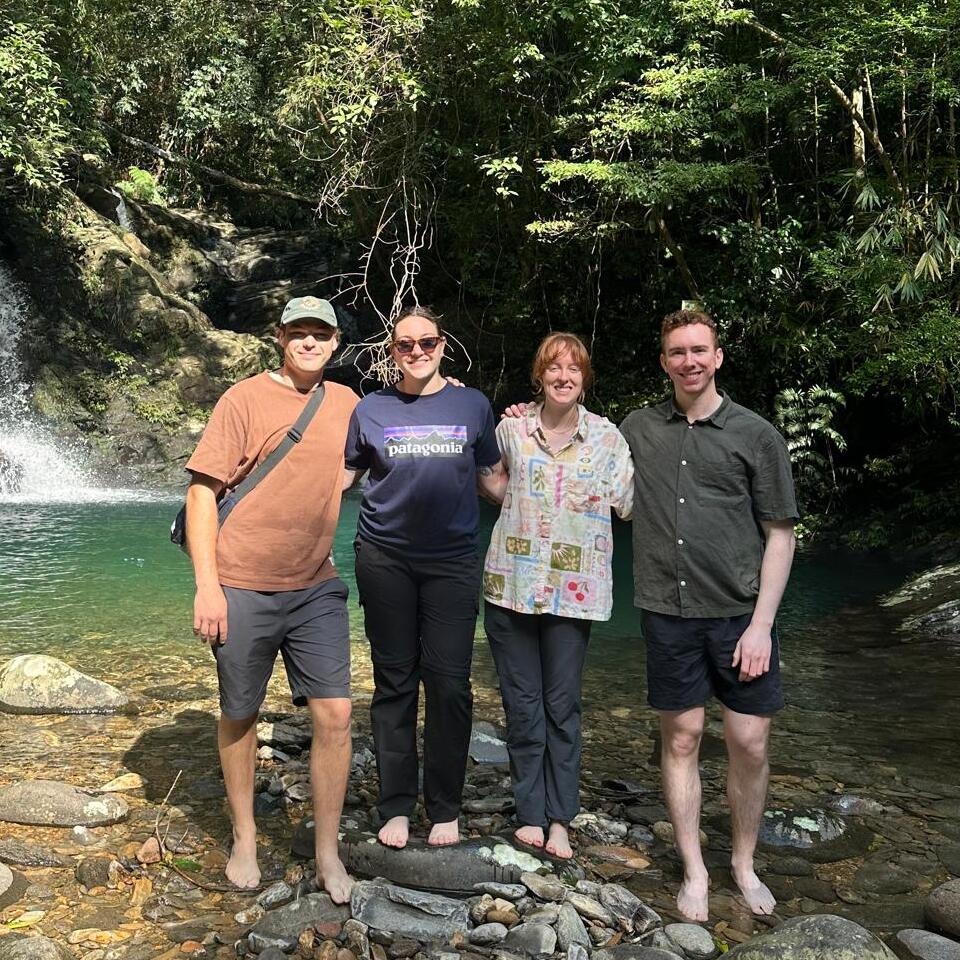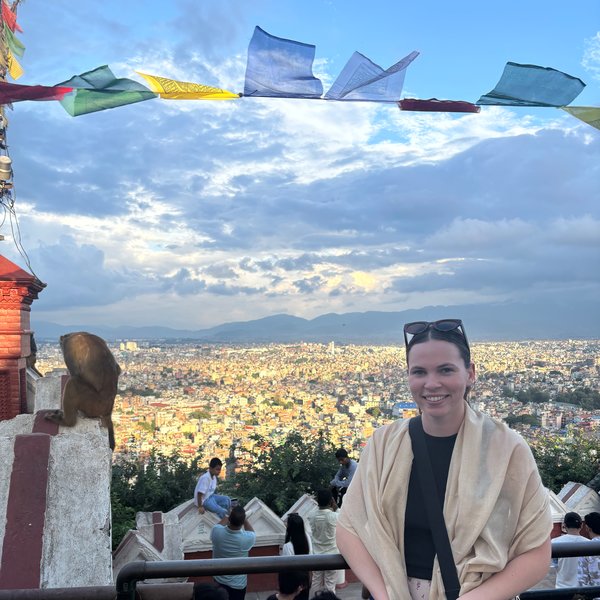Keele University 2012
If I were to use one word to sum up my time in Sri Lanka it would be ‘amazing’. It is an experience full of fabulous memories which will stay with me forever and which I will repeatedly wish I could re-live all over again. It also makes writing this case report very difficult as there is so much I want to write about, but I don’t think words quite do it justice.
From the moment I stepped off the plane and was greeted by the project manager, Nandika’s, friendly face, the apprehension I had about travelling alone in a foreign country was immediately alleviated. It didn’t take long to get to know my new ‘Work the World family’ either - the other Work the World students and the cook Aloysius, cleaner Champika and Uncle the security guard. If there was anything you needed Champika, Nandika and Aloysius were sure to try and help. We often called upon them to help us book guest houses to stay in during weekends which, and I can vouch from experience, can be challenging if you know very little Sinhalese!
Situated high up in the Kandy hillside the accommodation is in a quiet area, allowing one to escape the busy atmosphere within the town, and has amazing views and some of the most spectacular sunsets I have set eyes on. The accommodation is always spotless, thanks to Champika, and really began to feel like a home from home and was always a pleasure to return to during the week and after a weekend of travelling.
Aloysius makes a good variety of meals; my favourite meal of the week would have to be the rooftop barbecue although he also creates some good traditional curries and nice pasta dishes. I also really enjoyed his yummy deserts and numerous pancakes we’d consume in the mornings prior to setting off for placement.
As with every other work the world student, I had studied my guide book prior to arriving and and planned a few things I’d like to do. However, I never anticipated just how much there was to do on the island and after four weeks of intense travelling there were still parts I hadn’t managed to visit. I did however get to see the Pinewella elephant orphanage, numerous temples, a turtle hatchery, Horton Plains National park as well as walking around the idyllic botanic gardens, passing numerous tea plantations, white water rafting and visiting some of the famous sites in the cultural triangle. I think Sri Lanka has something to suit every taste. If, like me, you are a fan of the outdoors then you‘re bound to enjoy the challenge of walking up Adam’s peak. I emphasise the word ‘challenge’ here as you walk up 5200+ uneven steps to a height of 2,243 metres in the pitch black over night. Yes, you may be thinking you must be mad, and believe me that thought did cross my mind a couple of times whilst I was ascending, but it is a brilliant chance to experience some of the religious culture and if you’re lucky, unlike our group of intrepid adventurers, you can capture some amazing pictures from the top of the peak at sunrise.
If, as I, you want to experience medical provision in a less economically developed country very different to the UK, but are worried about the potential ‘language barrier’, I can assure you this is not a problem in Sri Lanka. Whilst most patients speak Sinhalese or Tamil, the doctors largely speak English to each other and address you in this way. In fact the paediatrician I was attached to had worked in an English Hospital for some time and was therefore very fluent.
It’s probably helpful to tell you about a typical day at the hospital in Sri Lanka. After a bouncy ride in a ‘tuk tuk’ to the Kandy General Teaching Hospital, I would arrive on the wards at 8:00 am in time for the morning ward round. I spent two weeks in the General Medicine Ward with a doctor who can only be described as the Sri Lankan version of ‘House’ off the television series. He was certainly a master of ‘spot diagnoses’ and amazed me with his ability to detect a heart murmur and other cardiorespiratory diagnosis simply by brushing his stethoscope across a patient’s chest. Being on this ward also provided my first experience of patients with tropical diseases such as dengue fever and leptospirosis. My second two weeks were spent on the paediatric ward, which similar to the UK was perhaps one of the busiest areas. I was immediately struck by the high prevalence of developmental delay and genetic problems many of these children were admitted with.
Whilst in Sri Lanka I was also given an opportunity to attend a rural clinic in Trinco, approximately some 8 hours by bus journey from Kandy. These clinics are intended to reach out to local communities which are remote from the nearest Government hospital, and in relative poverty. Given that these individuals rarely access medical care I was also exposed to a variety of clinical signs and advanced medical conditions.
I must admit that having had such an amazing four weeks in Sri Lanka, and now being much more comfortable with travelling alone in a foreign country, I wished I had stayed longer or split my elective to spend time and learn about medical provision in another Work the World location. I am hopeful that I may have an opportunity like this again in my future career as a doctor and I must admit to feeling slightly envious of those medical students that are still planning their electives. As the elective planning often coincides with busy exam revision periods for some students, Work the World can provide a professional service and a convenient solution to securing a safe and memorable elective placement.


.jpeg)






